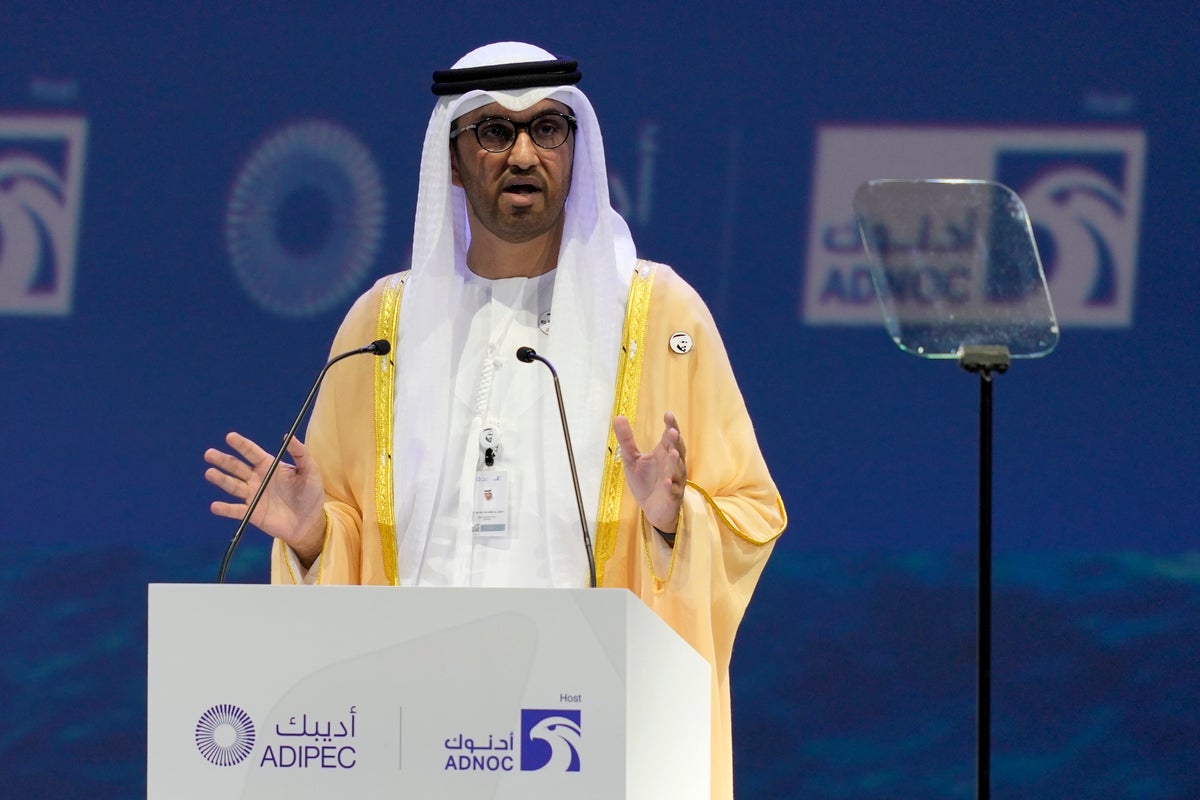
The United Arab Emirates on Thursday named a veteran technocrat with experience in both renewable energies and the oil business as the president of the upcoming United Nations climate negotiations in Dubai, highlighting the balancing act ahead for this crude-producing nation.
Authorities named Sultan al-Jaber, a trusted confidant of UAE leader Sheikh Mohammed bin Zayed Al Nahyan, who now serves as CEO of the state-run Abu Dhabi National Oil Co. That firm pumps some 4 million barrels of crude a day and hopes to expand to 5 million daily.
Those revenues fuel the ambitions of this federation of seven sheikhdoms on the Arabian Peninsula — as well as the production of more of the heat-trapping carbon dioxide that the U.N. negotiations hope to limit.
But al-Jaber also has experience in renewables as well. He led a once-ambitious project to have a $22 billion carless, “carbon-neutral” city on Abu Dhabi's outskirts that later pared back its ambitions after the global financial crisis that struck the Emirates hard beginning in 2008. Even today, he serves as the chairman of Masdar, a clean energy company that grew out of the project that now operates in more than 40 countries.
“Sultan al-Jaber has the credentials and background to lean into trends that are already on going,” said Ryan Bohl, an Austin, Texas-based Mideast analyst for a risk-intelligence firm called the RANE Network. “Him being an oilman, I don’t think that will be that big of a risk for him.”
The Emirates' state-run WAM news agency made the announcement.
“This will be a critical year in a critical decade for climate action," WAM quoted al-Jaber as saying. “The UAE is approaching COP28 with a strong sense of responsibility and the highest possible level of ambition.”
He added: “We will bring a pragmatic, realistic and solutions-oriented approach that delivers transformative progress for climate and for low-carbon economic growth.”
Each year, the country hosting the U.N. negotiations known as the Conference of the Parties — where COP gets its name — nominate a person to chair the talks. Hosts typically pick a veteran diplomat as the talks can be incredibly difficult to steer between competing nations and their interests. The nominee's position as “COP president” is confirmed by delegates at the start of the talks, usually without objections.
The caliber of COP presidents has varied over the years. Observers widely saw Britain’s Alok Sharma as energetic and committed to achieving an ambitious result. Egypt’s Foreign Minister Sameh Shoukry faced criticism by some participants for the chaotic and at times non-transparent way he presided over last year's meeting.
Al-Jaber's planned role as president would see the technocrat firmly in the world's spotlight for the first time. While not a member of Abu Dhabi's ruling Al Nahyan family, he's become crucial in running the Emirates' energy policies.
___
Associated Press writer Frank Jordans in Berlin contributed to this report.







